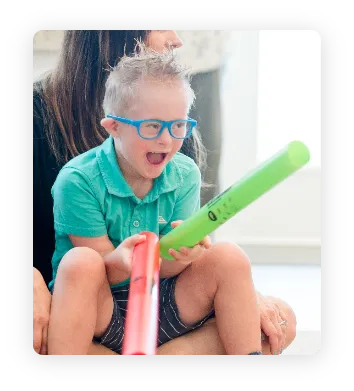
Individual Sessions
Most of us are familiar with the power of music; it stirs emotions, brings back memories, and helps us express ourselves. Combining music with therapy can have a positive impact on mental health for a wide range of patients. Music therapy including vocalization, rhythm exercises, lyric writing, and more helps patients meet goals for growth in various aspects of their lives.
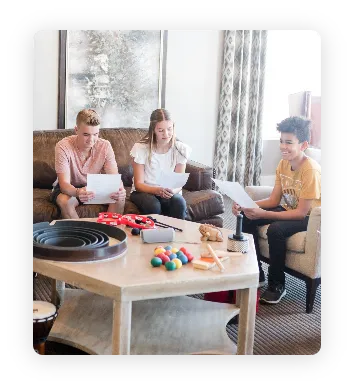
Group Therapy
Group music therapy sessions are designed to help participants better connect with one another by setting mutual goals and working together to meet them. In a group setting, participants learn about respecting others, expressing themselves, and connecting in meaningful ways through various musical methods.
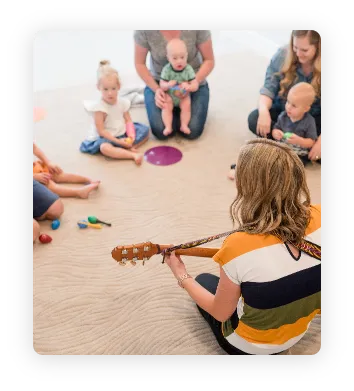
Developmental Music Therapy
Clients aged 0-5 years who need a way to improve motor skills, language skills, or social skills can benefit from music therapy sessions. Music therapy that includes movement, instruments, and socialization has been shown to help babies and toddlers bond with each other and their family members. Plus, it plants a seed for children to grow up loving music and all it has to offer.
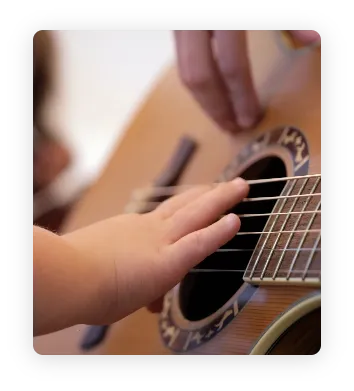
Adapted Music Lessons
While music therapy is not the same as music lessons, Pure Progression does offer adapted music lessons. These are ideal for individuals who haven’t had success with traditional music lessons, whether for string instruments, piano, singing, or more. Our adapted materials and approach to lessons help clients find confidence in their skills while reducing anxiety about learning an instrument.
What Is Music Therapy?
Music therapy is an evidence-based practice that addresses the physical, emotional, cognitive, and social needs of our clients. Pure Progression music therapists are Board Certified (MT-BC) to provide music interventions for clients of all ages and abilities. Our staff has education related to the music therapy field, including a degree in music therapy, clinical training, supervised internships, and more.
More than music lessons, music therapy services are designed to give the individual or group the ability to better communicate through music. By no means a new branch of therapy, music therapy is continually being researched by institutions such as the Nordoff-Robbins music therapy center in New York. Since WWII, music therapy has been improved upon and regulated to ensure proper care is being administered by individuals who have been approved by the certification board for music.
Who Is Music Therapy For?
Sessions are customized for the client and are suitable for a variety of settings, including:
- Individual therapy
- Group therapy
- Early childhood therapy
- Youth therapy
- Adult therapy
- Older adult therapy
Music therapy is for anyone who wants to increase their quality of life, whether they live with autism spectrum disorder, speech delays, physical and cognitive impairments, or struggle with mental health. The American Music Therapy Association suggests that music therapy can be beneficial for individuals in the following populations:
- Brain injury
- Addiction recovery
- Behavioral health
- Memory disorders
- Hospice care
- Military service
- Neonatal Intensive Care Unit (NICU)
- Special education
- And More
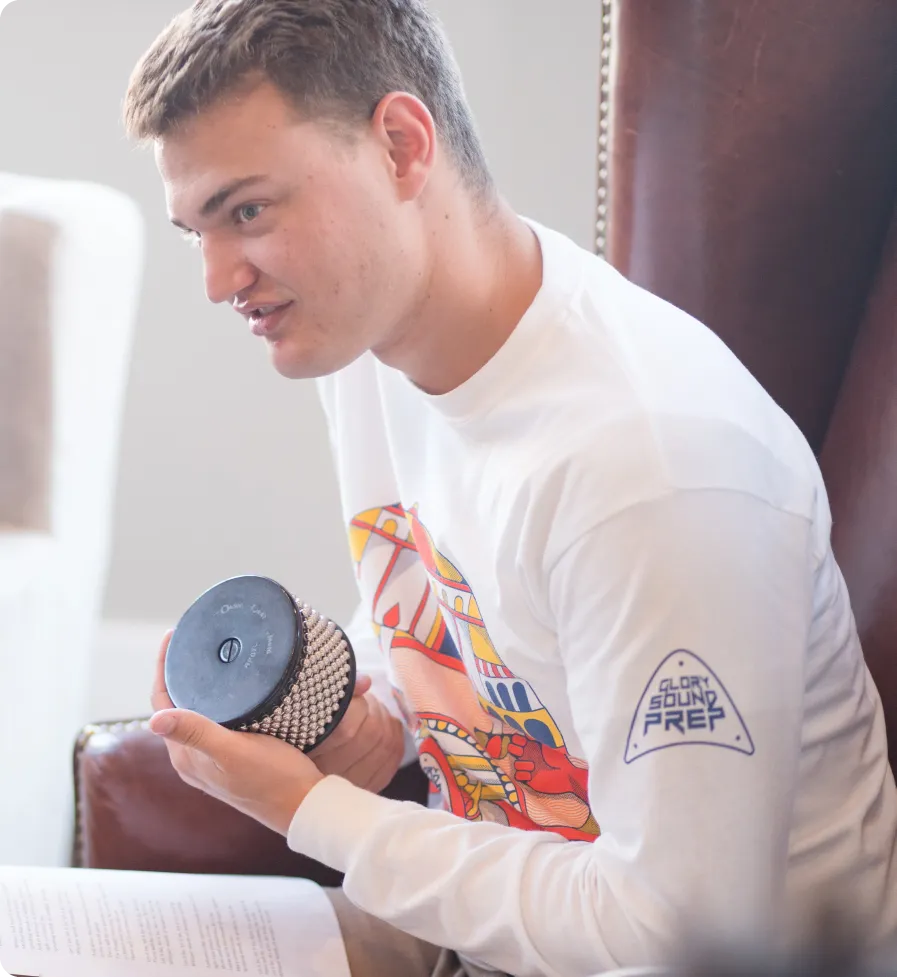
Pure Progression music therapy sessions for individuals or groups can be done in our Lehi, Utah studio, in your home, or at a facility.
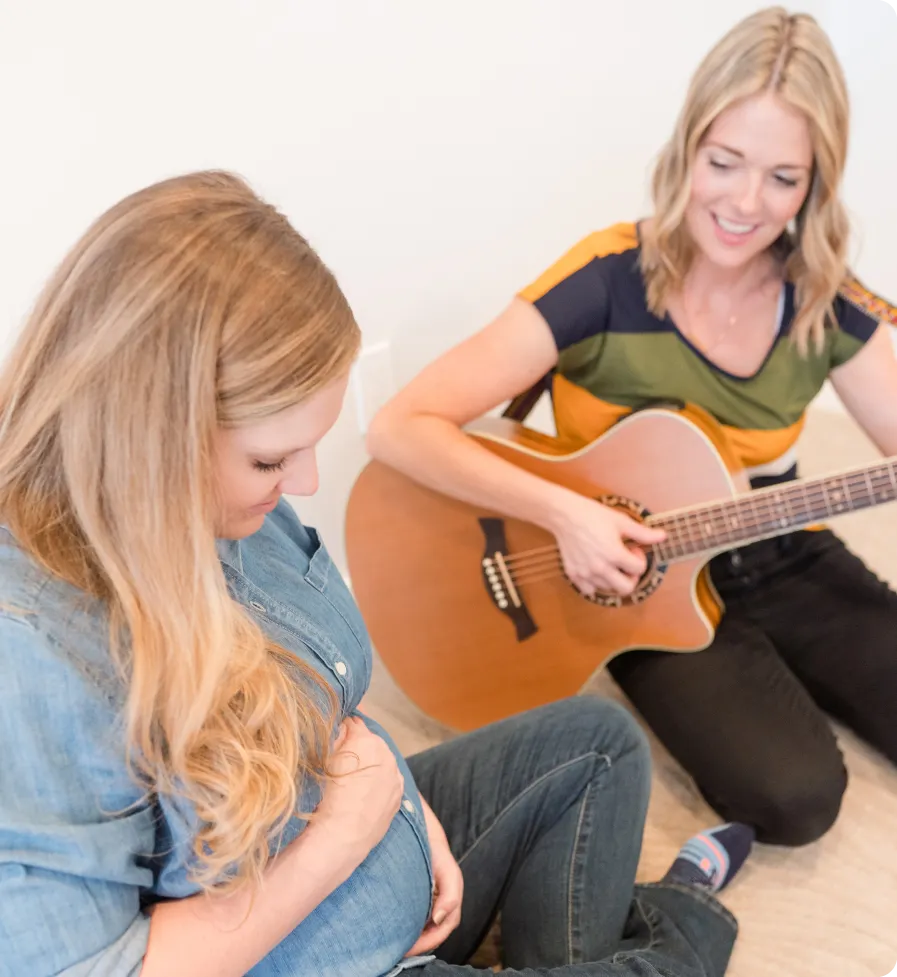
The goal is to identify areas that need improvement and address them with exercises approved by the American Music Therapy Association.
What Are The Benefits Of Music Therapy?
Studies have shown the benefits of music therapy include:
- Reduced physical pain
- Improved communication skills
- Being able to express emotions or feelings
- Stress management
- Overall physical health improvement
- Complement physical rehabilitation
- Improved cognitive skills
Pure Progression Music Therapy Process
The effects of music therapy services are best seen when we follow a three-step process.
Board Certified Music Therapist assesses client’s needs, goals, and objectives.
Music therapy sessions are conducted with documentation of progress.
Clients are given tools to use in their daily lives to complement music therapy methods.
Music Therapy Interventions
Did you know there are four areas of music therapy interventions? And within each of the four categories, different exercises are implemented to help clients meet individual or group goals.
Intervention Categories
- Receptive
- Re-creation
- Improvisation
- Composition/Songwriting
The interventions and exercises used will always be based on our assessment of the client and what proves most successful for individual or group goals.
Music Therapy Exercises
- Lyric analysis
- Improvisation
- Music listening
- Drumming
- Movement
- Songwriting
- Singing
- Instrument play
- Relaxation
What Our Clients Say
Pure Progression Music Therapy Service Areas
As mentioned, we’re happy to bring our services to clients who live along the Wasatch Front in Utah. We’re based in Lehi but will travel as far as Summit, Wasatch, and Tooele Counties.